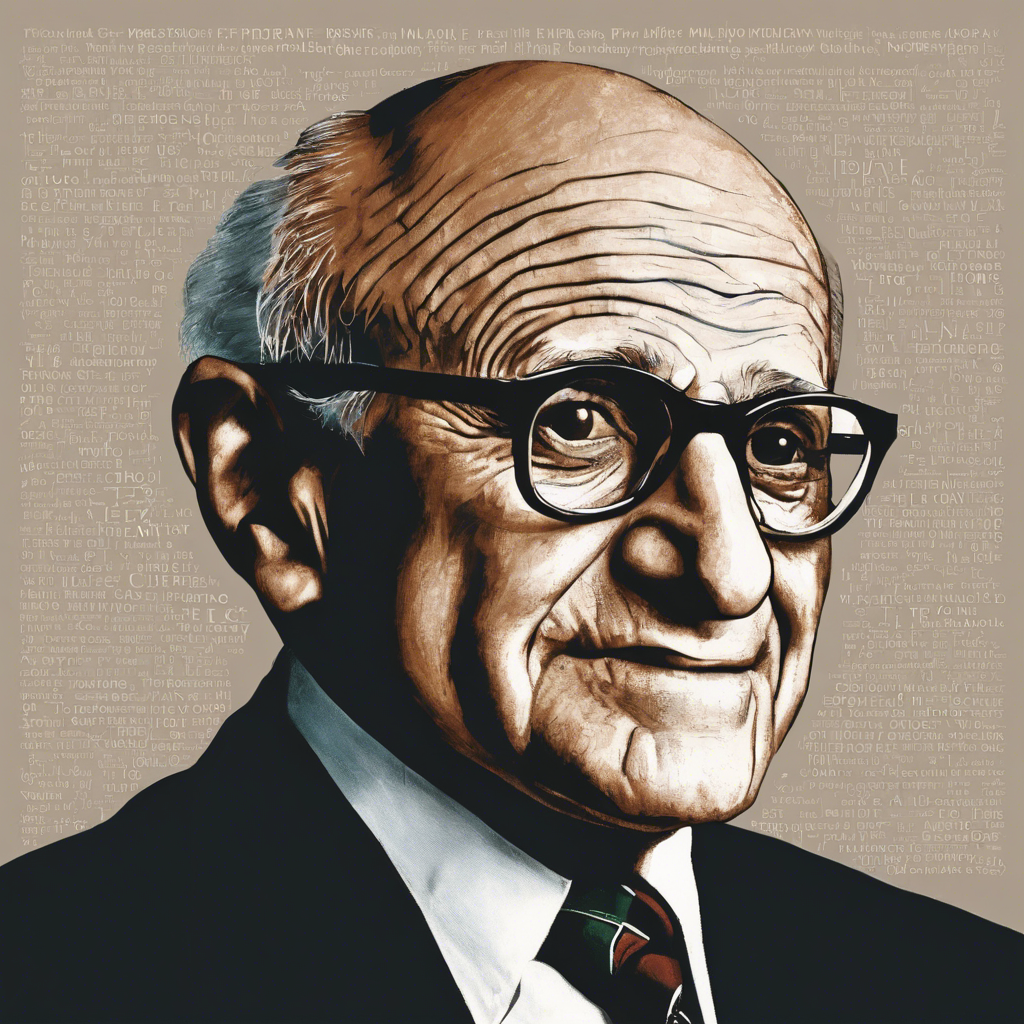Milton Friedman: The Last Conservative

An in-depth look at the life and influence of a legendary economist
Milton Friedman, the renowned economist, left an indelible mark on the field of economics. From his groundbreaking theories on monetary policy to his unwavering belief in free markets, Friedman’s ideas continue to shape economic policies around the world. In a recent biography by Jennifer Burns, “Milton Friedman: The Last Conservative,” his life and legacy are explored in detail. This article delves into the key aspects of Friedman’s career, his influence on economic thought, and his relentless pursuit of intellectual battles.
The Rise of a Maverick Economist
Friedman’s journey began during the Great Depression, where he witnessed firsthand the devastating effects of economic turmoil. Inspired by the potential of economics to address society’s biggest questions, Friedman embarked on a Ph.D. program at the University of Chicago. There, he encountered influential professors who challenged the prevailing economic orthodoxy and fostered his belief in free markets. Friedman’s early years were marked by his willingness to challenge established economists and institutions, setting the stage for his future intellectual battles.
Monetarism and the Fight Against Inflation
One of Friedman’s most significant contributions to economic thought was his development of monetarism. Rejecting the prevailing Keynesian ideology, Friedman argued that inflation was primarily caused by monetary expansion. He advocated for stable money supply as the government’s primary tool to combat inflation. This theory directly challenged the New Deal liberalism and the fiscal revolution of John Maynard Keynes. Friedman’s ideas gained traction as he engaged in heated debates with prominent economists, solidifying his reputation as a fierce intellectual combatant.
Influence on Economic Policies
Friedman’s influence extended far beyond the realm of academia. His ideas informed policies that transformed the economic landscape of the United States and the United Kingdom in the latter half of the twentieth century. From the end of the mandatory draft to the implementation of the earned-income tax credit, Friedman’s prescriptions left an indelible mark on government policies. Developing countries also looked to Friedman’s extreme conception of free markets during and after the Cold War, with varying degrees of success.
The Power of Storytelling
Despite being known for his rigorous economic analysis, Friedman understood the importance of storytelling in conveying his ideas to a broader audience. Through popular books and a Newsweek column, he brought monetarism and his vision of free markets to the public. Friedman’s ability to communicate complex economic concepts in a relatable manner helped solidify his influence outside of academic circles.
A Legacy of Controversy
Throughout his life, Friedman never shied away from controversy. He embraced his role as a campus culture warrior and engaged in debates on topics ranging from civil rights to welfare expansion. Friedman’s polemicism aligned with the rising conservative movement of the 1960s, and his ideas found fertile ground among influential figures such as Barry Goldwater. However, his relentless pursuit of intellectual battles and his unwavering criticism of government policies led to both admiration and criticism from his peers.
Conclusion:
Milton Friedman’s impact on economics and public policy cannot be overstated. His theories on monetary policy and free markets continue to shape economic thought and influence policymakers worldwide. Despite his success, Friedman remained a relentless critic and advocate for his ideas until his final days. “Milton Friedman: The Last Conservative” offers a comprehensive look at the life and legacy of a man who forever changed the field of economics. As we reflect on his contributions, it is clear that his influence will continue to shape economic discourse for generations to come.

